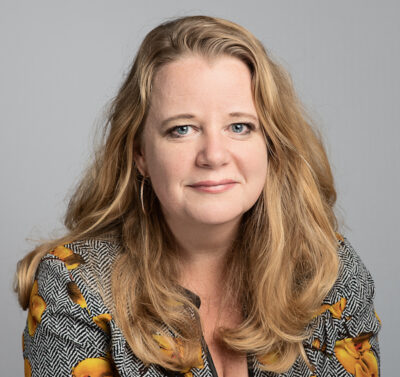Diversity and inclusion, with respect to gender, nationality, culture, sexuality, etc… is unfortunately still missing in most places, and universities are definitely not a front runner. Research has shown that increased diversity in the working place, adding diversity in methods, approaches, etc… leads to increased performance and output overall. Whereas we want (need) diversity and inclusion in all aspects, as wide as possible, for this contribution I will mostly focus on diversity and inclusion in academia terms of gender.
Many countries, including the UK and the Netherlands (De Monitor – LNVH)1, as well as the European commission (She Figures – EC)2, have been monitoring the number of women at universities incl. their distribution over the different faculty positions. Based on this monitoring, actions and policies have been proposed and implemented. For example, at the European level, all Horizon Europe applicants institutes will need to have a detailed gender and diversity policy in place and published.
For this talk I will draw upon my own experience, as well as the research done by the Dutch network of female professors (LNVH). I will present the aforementioned Women Professors Monitor1, but also report on the work done with respect to harassment and “power battles” in academia3, differences in rewarding (e.g. salary, working hours, negotiations)4,5, COVID-19 effects on academics6. I will compare to UK numbers and efforts where possible.
I will end with suggested possible ways forward, to work together, and hopefully change the academic culture to become more divers and inclusive overall.
Prof. Dr. Moniek Tromp, Chair of Materials Chemistry, University of Groningen, The Netherlands; Board Member Dutch Network Female Professors (LNVH)
References:
- https://www.lnvh.nl/a-3542/presentation-monitor-vrouwelijke-hoogleraren-2020
- https://op.europa.eu/en/publication-detail/-/publication/9540ffa1-4478-11e9-a8ed-01aa75ed71a1
- https://www.lnvh.nl/a-3078/harassment-in-dutch-academia.-exploring-manifestations-facilitating-factors-effects-and-solutions.
- https://www.lnvh.nl/a-3042/verborgen-verschillen-in-werktaken-hulpbronnen-en-onderhandelingen-over-arbeidsvoorwaarden-tussen-vrouwelijke-en-mannelijke-wetenschappers-in-nederland
- https://www.lnvh.nl/a-1270/lnvh-rapport-financiele-beloning-mv-in-de-wetenschap
- To be published in May 2021.

Moniek Tromp finished her MSc in Chemistry, with specialisations in spectroscopy and catalysis, at the University of Utrecht (Nld) in 2000. She then obtained a PhD from the same university, in the fields of homogeneous catalysis and time-resolved X-ray absorption spectroscopy with Profs. Koningsberger and van Koten. After finishing with distinction (‘cum laude’, greatest honours possible) in 2004, she moved to the University of Southampton (UK) for a Post-Doctoral Research fellowship in the fields of heterogeneous catalysis and spectroscopy. In 2007, she was awarded an EPSRC Advanced Research Fellowship to start her own independent academic career (and became lecturer). She moved to Germany in 2010, where she took up a position as professor in Catalyst Characterisation at the Technical University Munich. In 2014, she decided to come back to the Netherlands, working at the University of Amsterdam. From July 2018 she has taken up the Chair of Materials Chemistry at the Zernike Institute at the University of Groningen.
She has been awarded prestigious fellowships/awards like the EPSRC Advanced Research Fellowship, NWO VIDI and the NWO Athena prize. She is active in numerous science advisory and review panels of large research facilities and universities internationally, part of a European Science Strategy team for large facilities, has published over 100 papers in high profile journals and given over 80 invited lectures worldwide.
She is chair of the Dutch Catalysis Society, board member of the science domain of the Dutch Science Foundation (NWO), vice-chair of the Young Academy Europe, board member of the Young Academies Science Advice Structure (as such part of the science advice mechanism of the EU). Gender and diversity are important for her and she has been active as Gender Equality Officer (D) and is now developing programs for primary school on science and engineering as well as gender bias issues. From 2019, she has taken up a board position at the Dutch Network Women Professors (LNVH).
Her research focusses on the development and application of operando spectroscopy techniques in catalysis and materials research, incl. fuel cells, batteries, photochemistry, as well as arts, with a focus on X-ray spectroscopy techniques. Novel (time resolved) X-ray absorption and emission spectroscopy methods have been developed as tools in catalysis and energy material (battery and fuel cell) research. This includes the development of the required operando instrumentation and cells, as well as data analysis and theoretical methods. Application of the techniques to fundamentally or industrially interesting catalytic processes and materials has been pursued, providing unprecedented insights in properties and mechanisms.
Prof. Dr. Moniek Tromp
Chair of Materials Chemistry
University of Groningen, Faculty of Science and Engineering
Zernike Institute for Advanced Materials – Materials Chemistry
Nijenborgh 4, 9747 AG Groningen
The Netherlands
Secretary
Ursula Schmidt
E U.G.Schmidt@rug.nl
Twitter @moniek_tromp
Websites https://www.rug.nl/staff/moniek.tromp/ and https://www.rug.nl/research/zernike/materials-chemistry/




